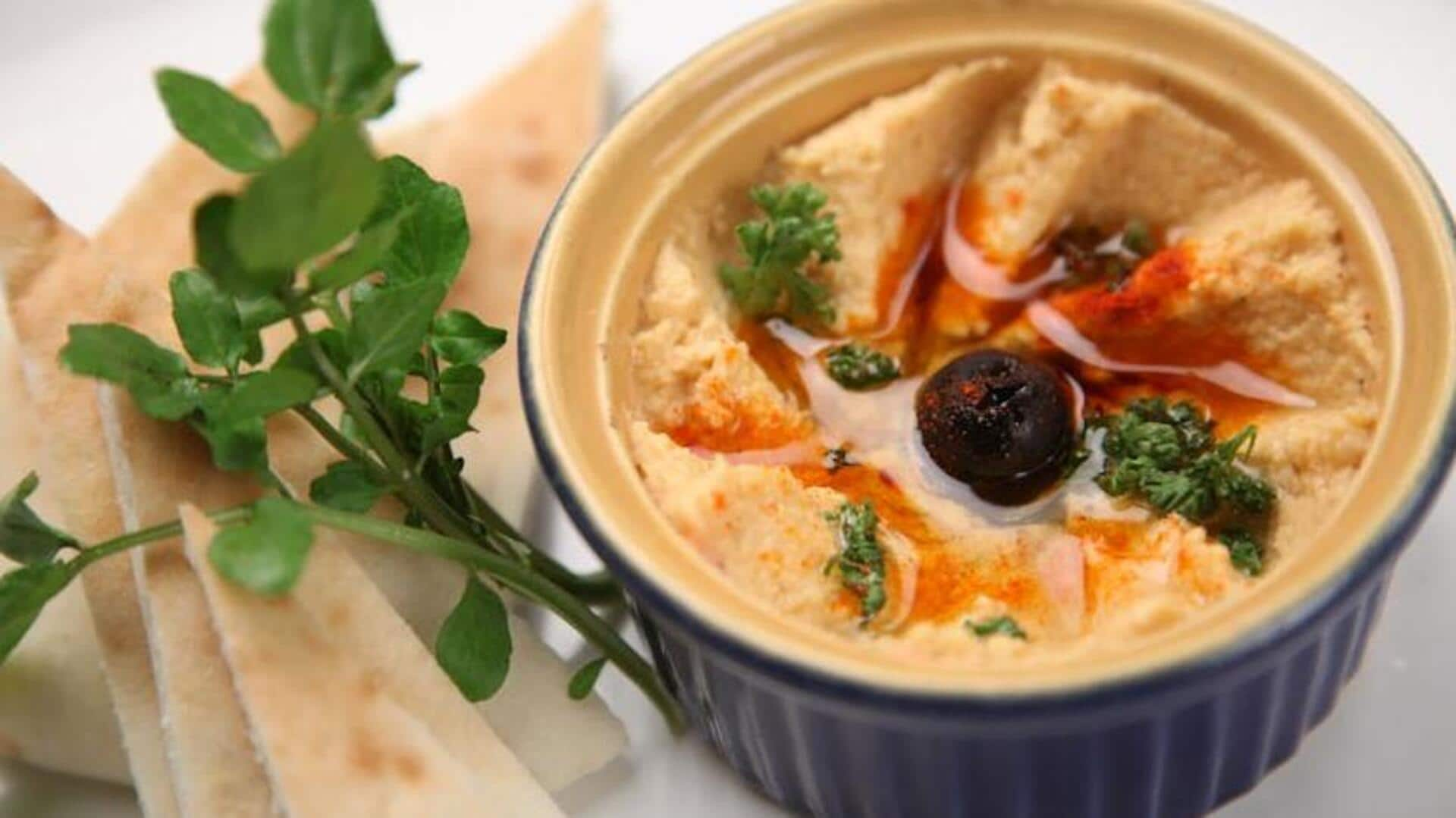
Essential legumes for authentic Lebanese hummus
What's the story
Hummus, the heart of Lebanese cuisine, holds a special place in the world of gastronomy for its velvety texture and deep, harmonious flavors.
The soul of this iconic dish lies in the authenticity of its legumes. Choosing the right legume is crucial for recreating that authentic taste and texture.
This article explores the star legumes behind traditional Lebanese hummus, highlighting their distinct qualities and roles in the recipe.
Core ingredient
Chickpeas: The heart of hummus
Chickpeas, aka garbanzo beans, are the unsung heroes of hummus.
For the true Lebanese experience, skip the canned stuff and go straight for dried chickpeas. A little overnight soak and you're on your way to super smooth, flavor-packed hummus.
You'll need around 250 grams of the dried variety for a standard batch of hummus.
These little legumes deliver big on both texture and nutrition.
Sesame paste
Tahini: The essential companion
Although not a legume, tahini— a paste made from ground sesame seeds—is a crucial ingredient in traditional Lebanese hummus recipes.
It enhances the chickpeas by providing a creamy texture and a nutty flavor that distinguishes authentic preparations.
You should use about two tablespoons of tahini for every cup of cooked chickpeas you use in the recipe.
A good-quality tahini can significantly improve both the taste and the consistency.
Flavor enhancer
Adding depth with olive oil
Olive oil is the unsung hero of hummus, adding depth of flavor and luxurious mouthfeel.
While not a legume or even a distant cousin, olive oil is a must for achieving that silky smooth texture characteristic of Lebanese hummus.
And, a generous drizzle of extra virgin olive oil on top before serving brings a touch of culinary artistry to this heartwarming dish.
Taste balance
Seasoning matters: Lemon juice and garlic
The key to authentic Lebanese hummus lies in its careful balance of flavors achieved with lemon juice and garlic.
Freshly squeezed lemon juice provides acidity, cutting through the earthiness of the chickpeas and tahini, while garlic adds a sharp, almost spicy depth.
For 250 grams of cooked chickpeas, use one clove of garlic and two tablespoons of lemon juice.
Spice it up
Final touches: Spices
To take your Lebanese hummus to the next level, adding spices like cumin or paprika can introduce complexity to its flavor profile without overwhelming it.
A pinch or two can significantly amplify both aroma and taste—cumin provides a comforting warmth, while paprika contributes a sweet dimension with a subtle smoky undertone if you use the smoked variety.